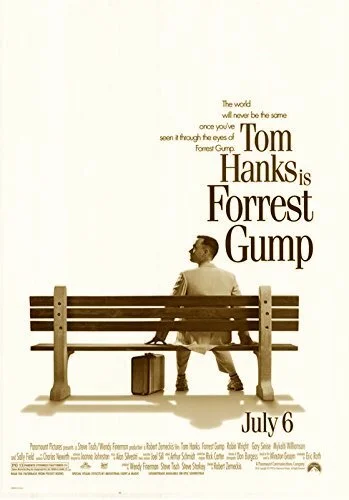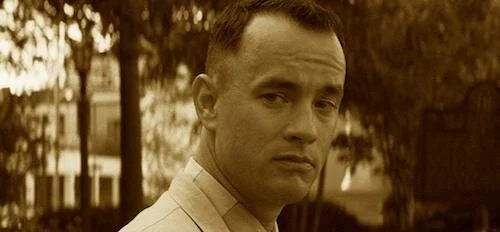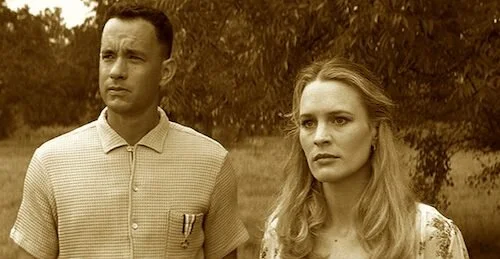Forrest Gump
This review is a part of the Best Picture Project: a review of every single Academy Award winner for the Best Picture category. Forrest Gump is the sixty seventh Best Picture winner at the 1994 Academy Awards.
Out of all of the Best Picture winners, none have left me as conflicted as the insane Forrest Gump. Audiences cherish it as a classic, and it has become cemented in pop culture forever (there are even Bubba Gump restaurants). Critically, Forrest Gump is a little more divided. I can absolutely see why. It's rare for a film to pull me in as much as it leaves me scratching my head. The older I get, and the more I discuss this oddity with people the more I realize how much it is a politically neutral film. Forrest Gump lives multiple American dreams, but ingests none of the social commentaries. He is forever a neutral party, even in the face of many major events. I see how this works, and I understand the film a little better. He only cares about Jenny Curran, and that's all he will say about that.
Otherwise, a number of moments feel absolutely pointless, or too silly to take seriously. The way the film leaps forward is by having Gump run for a few years? Really? In a more satirical film, maybe that would make sense, but here, it feels like one of the many bizarre ideas I simply can't get behind. In that same breath, some of these scenarios are hilarious to me, particularly the placing of stock in Apple paying off. I simply don't get how a film can be so spot on and yet so bird brained, but that's Forrest Gump, I suppose. I also know that this story is from Gump’s perspective, and that’s why it’s all over the place. That doesn’t mean I have to like it, though.
Forrest Gump has a simple quest, but accomplishes much more, even if he doesn’t realize it.
Regardless of their quality, I always look forward to Robert Zemeckis films for their technological innovation. Even in a film like Forrest Gump, there is a spectacle to behold. The integration of Gump into specific moments of history is still quite marvellous to watch, even if we have more answers to the effects now. Through these careful decisions, and the outstanding performances by all (particularly a mightily committed Tom Hanks), you know Forrest Gump means well, despite the wonkiness. I know that this is all subjective whining on my part, but I wish the film resonated with me more.
I say this especially because of particular sequences that make the film a thousand times better for me. This includes the revelation that Gump knows that he is slow witted: a twist that changes our perception of his role in the entire film. Once Gump embraces the past and the present towards the end of the film, I feel the moving moments that have captivated audiences for twenty five years. For every dicey joke, there is either a clever jab, or a magnetic piece of drama.
Forrest and Jenny. Their relationship and divide pin point many moments in twentieth century America.
And, thus, I remain caught in the middle of the Forrest Gump zeitgeist: the tear between devotion and rejection. I find myself revisiting Forrest Gump frequently, not because I necessarily love the film (I don't), but because I am so confused as to where I stand. I think a 3 out of 5 makes sense. It's a mostly innocent film, still laden by obvious song selections and cinematic conventions, yet out of left field with absurdity that occasionally works. I am Forrest Gump when it comes to Forrest Gump: unsure of what exactly is going on, or how I pertain myself to these events, but we both drift by and make it out okay.
Andreas Babiolakis has a Masters degree in Film and Photography Preservation and Collections Management from Ryerson University, as well as a Bachelors degree in Cinema Studies from York University. His favourite times of year are the Criterion Collection flash sales and the annual Toronto International Film Festival.






